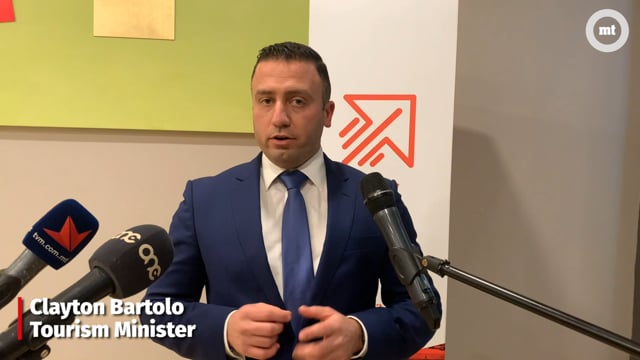[WATCH] New tourism strategy embraces green ideals, seeks to restore airline connectivity
Government’s tourism strategy looks to restore airline connectivity, while tapping into new markets through the use of modern technologies and embrace green targets


Malta’s tourism strategy will seek to rebuild and restore airline connectivity to the island, enhance visitor satisfaction, while embracing carbon-neutrality.
The foundations of this 10-year strategy, titled Recover, Rethink, Revitalise, were laid down on Monday by the Malta Tourism Authority.
The strategy is open for consultation with all stakeholders in a bid to map out a future for the tourism industry until 2030. The public consultation is open for three months.
MTA deputy CEO Leslie Vella said there are a number of domestic and international challenges which must be tackled that range from the immediate realities of a sector decimated by the COVID-19 pandemic to a post-COVID scenario.
He said government will be working to restore airline connectivity, while enhancing visitor satisfaction through improved tourism management.
The strategy also looks to address issues of sectoral overcapacities, which might indicate the need to redirect investment in the industry.
Vella said that the strategy was dedicating specific focus towards harnessing data and the use of modern digitalisation techniques to tap new markets.
But in a significant development, the strategy seeks to safeguard environmental protection, while emphasising the need for carbon-neutrality targets to be met.
From an environmental standpoint, targets related to the EU Green Deal and UN sustainable development goals must be met, Vella said.
Tourism Minister Clayton Bartolo outlined the importance of such a sector to the country’s economy and insisted that the strategy will not focus only on growth in numbers.
Bartolo said Malta must take the initiative in leading the way in the “new reality”, stating that an improvement in quality stems from identifying and harnessing opportunities which might arise.
“Malta is at a crossroads right now. That is why we are reaching out to stakeholders, so that when the pandemic passes, we emerge even stronger,” Bartolo said.
COVID-19 impacts on tourism
According to figures by the MTA, tourism levels in the country in the past year have reached 1980 levels, with recurring surges of COVID-19 cases inducing massive uncertainty amongst the traveling community.
Uneven EU-responses have also led unilateral country measures, which in turn led to further uncertainty.
The pandemic has also led to the departure of foreign workers, as well as the threat of migration from skilled personnel from tourism to other sectors.
Inbound tourists decreased by 72.7% last year, with a 77.6% loss in expenditure.
Passenger movement fell by 73.8%, with 63.5% less flights.
Cruise passengers registered a 92.1% decrease after 94.1% less cruise liner calls.






.jpg)















